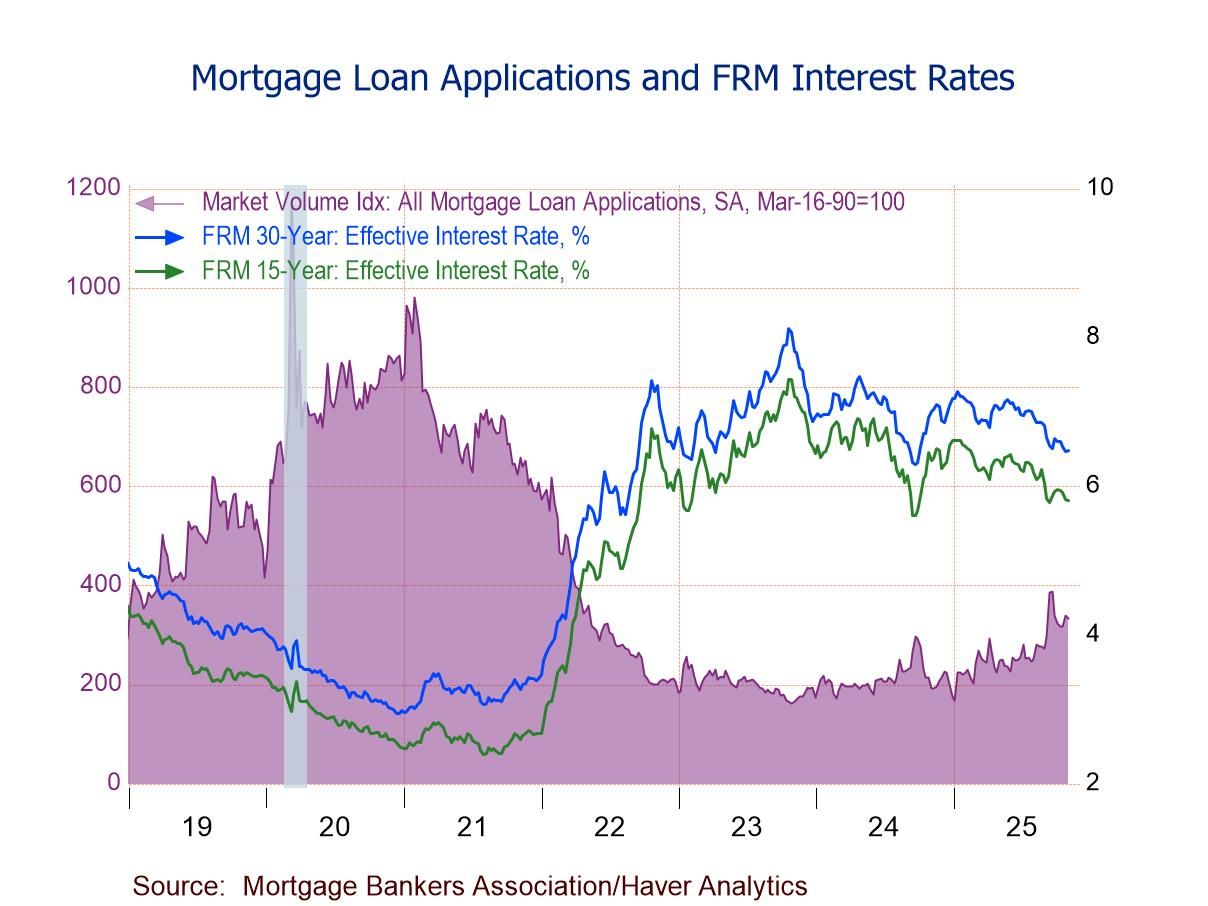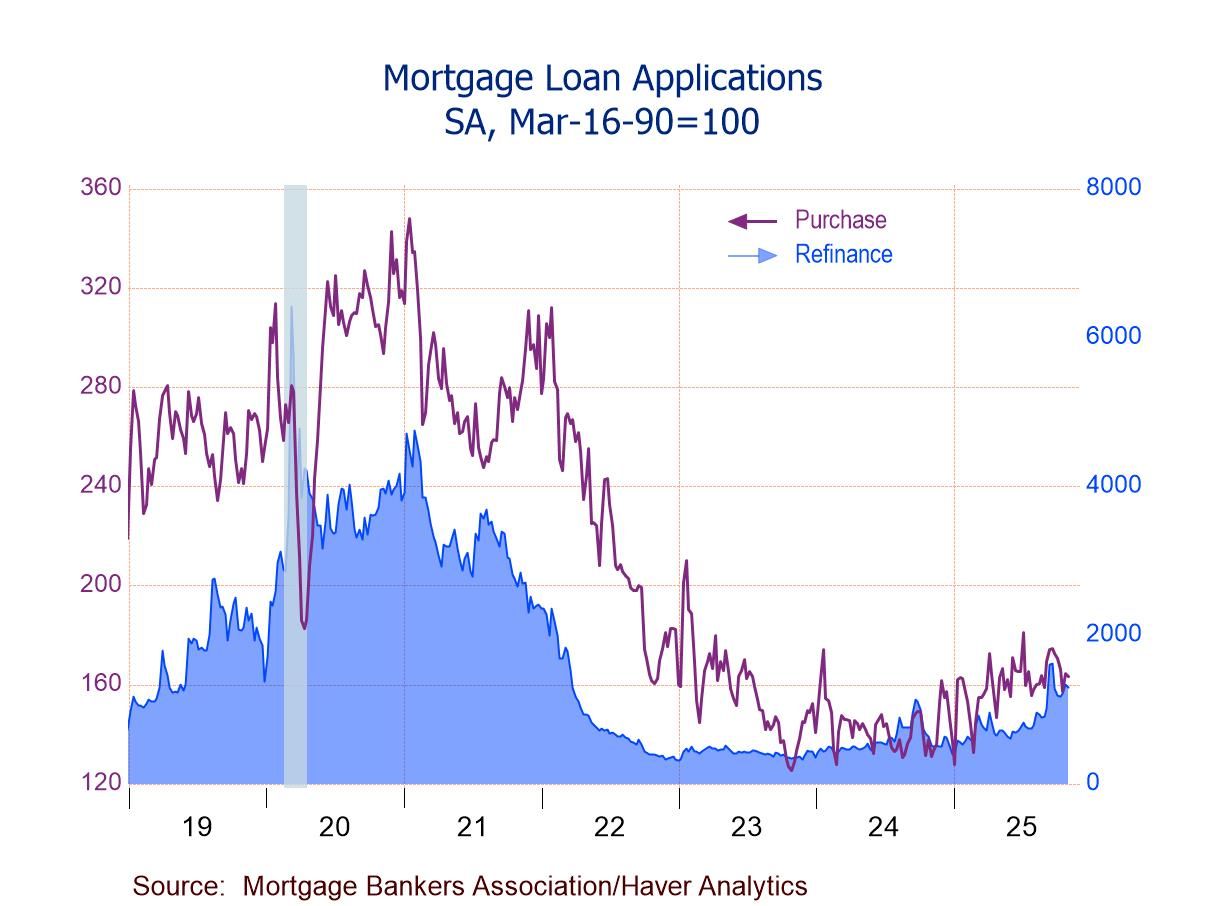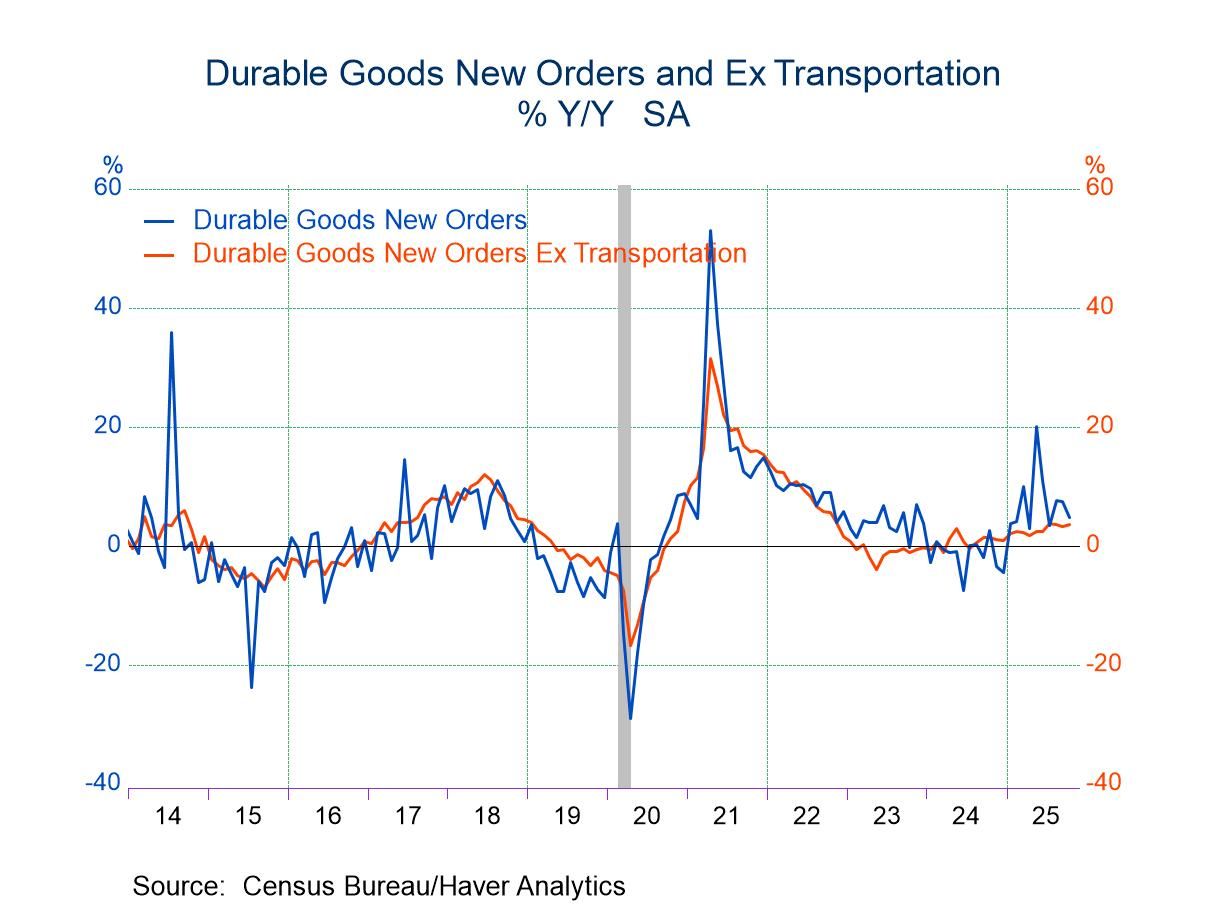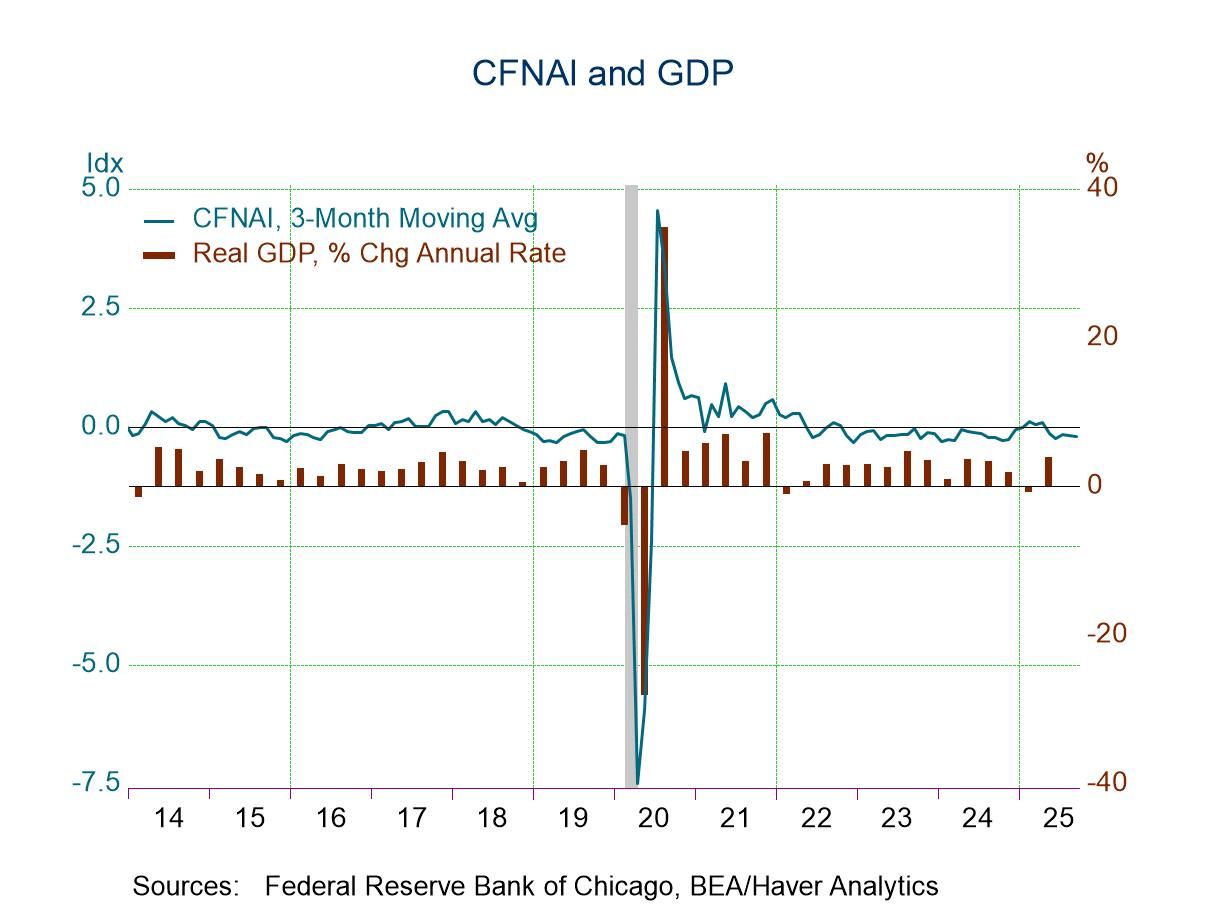U.S. Mortgage Applications Drop 1.9% in the October 31 Week After Previous Gain
Summary
- Purchase applications -0.6% w/w; refinancing loan applications -2.8% w/w.
- Effective interest rate on 30-year fixed loans ticks up to 6.48% despite ongoing downward trend.
- Average loan size rebounds to the highest level since the September 19 week.


Mortgage applications fell 1.9% w/w (+73.6% y/y) in the week ending October 31 following a 7.1% gain in the week ending October 24, according to the Mortgage Bankers Association’s (MBA) Weekly Mortgage Applications Survey. The latest reading was the fifth w/w fall in six weeks to the index level of 332.3. Applications for loans to purchase a house declined 0.6% (+24.8% y/y) in the October 31 week, down for the fifth week in six, after a 4.5% increase in the previous week. Applications for loan refinancing dropped 2.8% (+151.4% y/y) in the October 31 week, down for the first week in three, following a 9.3% advance in the October 24 week.
The effective interest rate on a 30-year fixed-rate loan edged up to 6.48% in the week ending October 31 after declining to 6.47% in the week ending October 24; it was up from a low of 6.29% in the week of September 20, 2024 but down from a peak of 8.12% in the week of October 20, 2023. The rate on 15-year fixed-rate mortgages slipped to 5.81% in the October 31 week, the lowest since the September 12 week, after decreasing to 5.82% in the previous week; it was up from a low of 5.60% in the week of September 20, 2024 but down from a high of 7.44% in the week of October 27, 2023. The rate on 30-year jumbo loans rose 4bps to a three-week-high 6.52% in the October 31 week after declining to 6.48% in the prior week; however, it was slightly down from a low of 6.57% in the week of September 13, 2024 and below a high of 7.99% in the week of October 27, 2023. The rate on a 5-year ARM rose 4bps to 5.88% in the October 31 week, the highest since the September 26 week, after rising to 5.84% in the previous week; it was above a low of 5.84% in the week of September 13, 2024 but below a high of 7.31% in the week of October 27, 2023.
The share of applications for refinancing an existing loan edged down to 57.0% of total applications in the week ending October 31 after rising to a five-week-high 57.1% in the week ending October 24; those numbers remained below a peak of 60.2% in the week of September 19. The adjustable-rate mortgage (ARM) share of activity fell to 8.7% in the October 31 week, the lowest reading since the September 26 week, after falling to 8.9% in the prior week; it was below its recent peak of 12.9% in the September 12 week and a high of 9.6% in the April 11 week but up from a low of 4.7% in the January 3 week.
The average size of a mortgage loan, up for the third week in four, increased 0.6% w/w (7.3% y/y) to $414,900 in the October 31 week, the highest level since the September 19 week, reversing a 0.6% drop to $412,300 in the October 24 week. The average size of a purchase loan fell 0.4% (-2.3% y/y) to $435,100 in the October 31 week on top of a 0.5% decline to $436,800 in the prior week, marking the fourth weekly fall in five weeks and the lowest level since the October 10 week. The average size of a loan to refinance a mortgage rose 1.5% (34.0% y/y) to $399,700 in the October 31 week after a 0.4% decline to $393,900 in the previous week, registering the third weekly rise in four weeks and the highest level since the September 19 week.
The Mortgage Bankers Association Survey covers 75% of all U.S. retail residential mortgage applications and has been conducted weekly since 1990. Respondents include mortgage bankers, commercial banks and thrifts. The base period and value for all indexes is March 16, 1990=100. The figures for weekly mortgage applications and interest rates are available in Haver’s SURVEYS database.
Winnie Tapasanun
AuthorMore in Author Profile »Winnie Tapasanun has been working for Haver Analytics since 2013. She has 20+ years of working in the financial services industry. As Vice President and Economic Analyst at Globicus International, Inc., a New York-based company specializing in macroeconomics and financial markets, Winnie oversaw the company’s business operations, managed financial and economic data, and wrote daily reports on macroeconomics and financial markets. Prior to working at Globicus, she was Investment Promotion Officer at the New York Office of the Thailand Board of Investment (BOI) where she wrote monthly reports on the U.S. economic outlook, wrote reports on the outlook of key U.S. industries, and assisted investors on doing business and investment in Thailand. Prior to joining the BOI, she was Adjunct Professor teaching International Political Economy/International Relations at the City College of New York. Prior to her teaching experience at the CCNY, Winnie successfully completed internships at the United Nations. Winnie holds an MA Degree from Long Island University, New York. She also did graduate studies at Columbia University in the City of New York and doctoral requirements at the Graduate Center of the City University of New York. Her areas of specialization are international political economy, macroeconomics, financial markets, political economy, international relations, and business development/business strategy. Her regional specialization includes, but not limited to, Southeast Asia and East Asia. Winnie is bilingual in English and Thai with competency in French. She loves to travel (~30 countries) to better understand each country’s unique economy, fascinating culture and people as well as the global economy as a whole.






